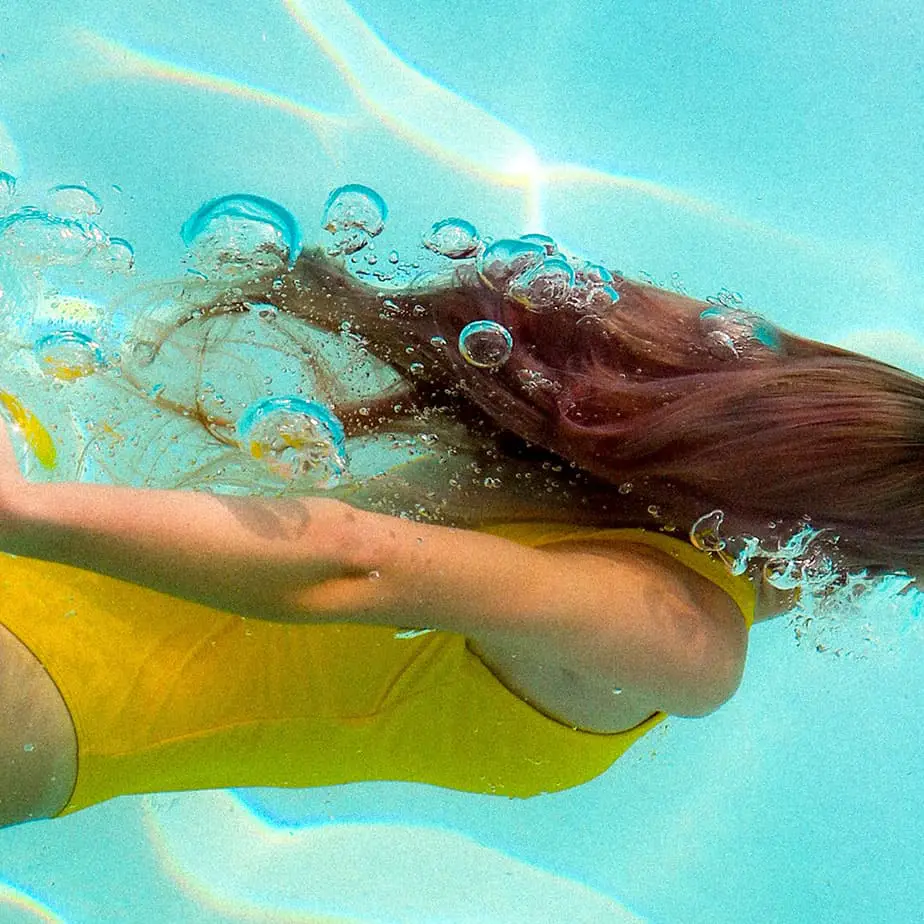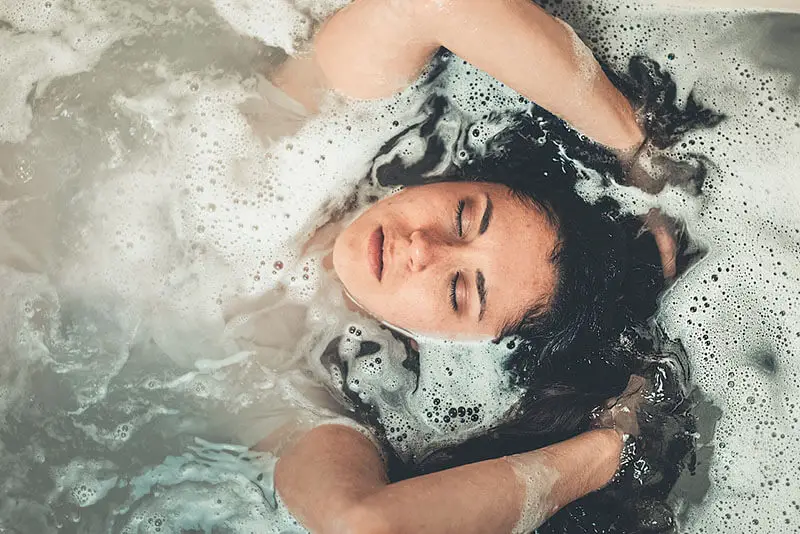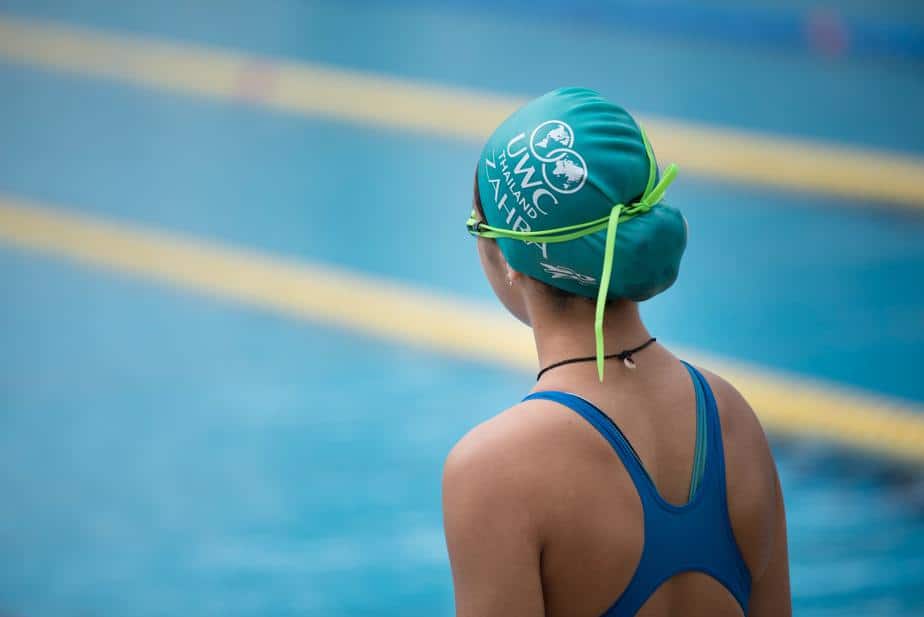For many swimmers and pool lovers alike, the lingering scent of chlorine on hair and skin is all too familiar. While effective at keeping pool water clean and safe, chlorine can also be harmful to your hair, causing dryness, damage, and that dreaded green hue. Thankfully, the right shampoo can help combat the effects of chlorine, and one popular solution is the clarifying shampoo.
Clarifying shampoos are designed to strip away residue and build-up, which can include chlorine. In this article, we’ll dive into the topic of whether clarifying shampoos can effectively remove chlorine from your hair or not. We will also explore some other top-rated options for keeping your locks healthy and chlorine-free after a swim.
What Is Clarifying Shampoo?

Clarifying shampoo is a special type of shampoo designed to deeply cleanse your hair and remove product buildup, dirt, and other impurities. Unlike regular shampoos, clarifying shampoos contain stronger cleansing ingredients and lighter conditioning agents, making them effective at dissolving oils and residues.
Using a clarifying shampoo, typically once a week or as needed, guarantees that your hair remains clean, fresh, and free from unnecessary deposits that weigh your hair down. However, because these shampoos are more potent than their regular counterparts, they can be drying to the hair and scalp if used too frequently.
Some people find that using a clarifying shampoo can help address specific hair concerns such as greasiness, dullness, or slow growth due to product buildup. Moreover, swimmers who are exposed to chlorine in the pool frequently might benefit from the use of a clarifying shampoo to eliminate chlorine residues from their hair.
There are various clarifying shampoos available in the market, catering to different hair types and needs. For example, the Pattern by Tracee Ellis Ross Clarifying Shampoo and the Ouidad Water Works Clarifying Shampoo are both popular choices for removing chlorine and other impurities from hair.
Chlorine and Hair
Effects of Chlorine on Hair

Chlorine, a common chemical used in swimming pools for disinfection, can have negative effects on your hair. When it comes into contact with hair, it can cause dryness, brittleness, and even alter your hair color, especially for dyed or lighter-colored hair. This is due to the fact that chlorine strips away natural oils that protect hair and can lead to protein damage.
Another problem induced by chlorine is the formation of chemical bonds with hair proteins, leading to the build-up of mineral deposits over time. This may cause your hair to become weighed down and appear dull, and sometimes even create a greenish tint if you have blonde hair.
Reducing Chlorine Exposure
There are various strategies for protecting your hair from chlorine’s damaging effects. For instance:
- Rinsing your hair with fresh water before swimming until it is saturated reduces chlorine absorption.
- Using a swim cap to provide a barrier between your hair and the pool water.
- Rinsing your hair immediately after swimming to remove any residual chlorine. Do not leave chlorine in your hair overnight.
Additionally, incorporating a clarifying shampoo into your hair care routine can help remove chlorine and mineral deposits.
There are various shampoos on the market designed specifically to combat the adverse effects of chlorine on hair, known as swimmers’ shampoo.
These shampoos work by gently cleansing and dissolving the build-up while also restoring moisture and shine to your hair, leaving it healthier and more manageable.
Does Clarifying Shampoo Remove Chlorine?

Clarifying shampoos can be effective at removing chlorine from your hair. The primary function of these shampoos is to help eliminate build-up from various hair products, minerals in hard water, and chemicals like chlorine from swimming pools.
How Clarifying Shampoos Work
Clarifying shampoos contain strong cleansing agents that can dissolve and wash away residues from various sources, leaving your hair feeling clean and fresh. In the case of chlorine removal, they usually consist of chelating ingredients which help to break down the chemicals and mineral buildup on the hair strands.
Effectiveness in Removing Chlorine
Even though clarifying shampoos are designed to tackle common build-up issues, not all of them are equally effective at removing chlorine. The effectiveness of a clarifying shampoo in removing chlorine depends on its specific formulation and the concentration of chelating agents.
Some clarifying shampoos, like the UltraSwim Chlorine Removal Shampoo, are specifically designed for this purpose and can be a better option for swimmers.
Aside from using a clarifying shampoo, there are other steps you can take to protect your hair from chlorine damage, such as using a swim cap, rinsing your hair before and after swimming or using a leave-in conditioner to add a protective layer.
Alternative Methods to Remove Chlorine
While a clarifying shampoo can remove chlorine from your hair, as mentioned above, it can be drying to the hair and scalp if used too frequently. Thus, if you are swimming everyday, you need safer ways to protect your hair.
Chelating Shampoo

One alternative product some swimmers use is chelating shampoo.
The chelating agents in chelating shampoo will specifically target hard-water minerals and chemicals like chlorine.
It should hopefully get rid of the chlorine problem without leaving your hair dry and brittle.
Swimmers’ Shampoos

Swimmers’ shampoos are specifically designed to help remove chlorine from your hair. These products can be more effective than regular clarifying shampoos when it comes to getting rid of chlorine.
Some popular options include the Paul Mitchell Shampoo Three, the TRISWIM Chlorine Removal Swimmers Shampoo, and the Malibu C Swimmers Wellness Shampoo.
For maximum results, follow the shampoo’s directions and use them regularly. In some cases, you can use them in combination with a conditioner that also aids in chlorine removal.
Home Remedies
If you prefer to try home remedies, there are a few options that can help in removing chlorine from your hair:
- Baking soda paste: Mix equal parts baking soda and water to form a runny paste. Apply the paste to damp hair and massage from your scalp to your ends. Rinse out the paste using clean water and shampoo.
- Vinegar rinse: Mix one part white vinegar with four parts water. Soak your hair in the vinegar solution for a few minutes, then rinse it out and shampoo your hair as usual. The acidic nature of the vinegar helps to break down the chlorine and remove it from your hair.
- Tomato juice: Tomato juice can help neutralize the chlorine in your hair. Apply tomato juice directly to your hair and let it sit for a few minutes. Rinse it out and follow with your regular shampoo and conditioner.
Home remedies may not be as effective as swimmers’ shampoos, but they can still offer some benefits. It’s essential to experiment with these methods to find the one that works the best for your hair type and personal preferences.
Tips for Protecting Your Hair from Chlorine

Swimming can be a great way to relax and stay fit, but chlorine in pools can damage your hair. Here are some tips to protect your hair from chlorine:
- Pre-soak your hair: Wetting your hair with clean water before swimming helps to prevent chlorine from being absorbed. The hair is like a sponge and by saturating it with fresh water, it will absorb less chlorine.
- Use a swim cap: A swim cap is an effective barrier between your hair and chlorinated water. It’s not foolproof, but it helps to minimize exposure.
- Apply oil or hair mask: Apply a thin layer of coconut oil or a hair-mask to your hair before entering the pool. This creates a protective barrier and makes it harder for chlorine to penetrate the hair shaft.
- Rinse and shampoo after swimming: Rinsing your hair with fresh water immediately after swimming is crucial to remove any residual chlorine. Use a clarifying shampoo to effectively remove chlorine build-up.
- Swim in outdoor pools: Chlorine concentrations in outdoor pools tend to be lower because chlorine gas evaporates faster. So when possible, opt for swimming outdoors.
I personally love how effective rinsing your hair with freshwater before and after swimming is for minimizing chlorine’s damaging effects. Not everyone can afford these specialized shampoos, and in my case, sometimes I run out and forget to buy a replacement.
If you are on a tight budget or you’re forgetful like me, the simple act of rinsing your hair with freshwater can provide great protection and it’s something you probably already do anyways. Think of clarifying shampoo as the cherry on top, not the whole cake.
Last update on 2024-07-13 / Affiliate links / Images from Amazon Product Advertising API


